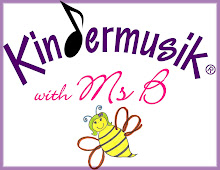"It's our time to sing together. Sing Hello, Hello!" A group of bright-faced of toddlers sits mesmerized as their moms clap and sing the welcome song in their Kindermusik class. We all know that music can soothe the savage toddler. But according to Don Campbell, internationally known educator and author of The Mozart Effect for Children, music also enhances intelligence, coordination, emotional expression, creativity, and socialization skills.
There's no guarantee your child will be composing symphonies by age 6. But Campbell does call music, particularly Mozart, "a power bar for the brain," not a frill but a developmental necessity in early childhood.
Why Mozart?
"His music is not oversaturated with emotion or rhythm. He doesn't overexcite the mind," says Campbell. "It's very balanced, clear music that can be used for many different kinds of noninvasive activities, depending on the age of the child-everything from meal time to sleep time to creating a good study environment."
If the thought of listening to Mozart 24/7 doesn't thrill you, don't despair. Campbell says kids benefit from exposure to a wide variety of quality music: folk songs, international music, hymns, jazz, children's songs, even rock music as a form of "sonic caffeine" to re-energize a child. Think of music like food, he says. "There are things that are very delicious that we like but we can't eat all the time. We need a balance in the ear as well."
Music Enhances Intelligence
At birth, a child's brain is in an unfinished state. Music plays a critical role in the process of "wiring" a young child's brain. With older children, music can create a good study environment and help a child learn information more efficiently. In fact, high school students who sing or play an instrument scored up to 52 points higher on the SAT than those who do not.
By now, you're probably wondering What tapes do I need to buy? But it's not simply a matter of playing music in the background to make your kid smarter, cautions Campbell. In fact, he encourages active participation of caregivers, especially when children are young. In other words, warm up those vocal chords and start crooning!
With young children, singing, chanting and rhythmic play can increase your child's vocabulary. Campbell encourages parents to make up songs about everyday activities like diaper changes and baths, turning a boring chore into a fun "sound break." As a child gets older, encourage her to invent her own songs.
If you can't carry a tune in a basket, don't despair. "I think there are musical qualities in all of us," says Campbell. Darren Muise of Kindermusik agrees. "I always say to parents, 'If you don't think you're a good singer, sing louder!'"
Music Helps Motor Development and Coordination
In young children, music helps pattern the movement of the body. "The ear's primary function is coordination and balance within the body," says Campbell. "And when we pace things with a musical beat, we are more coordinated."
Unfortunately, with more children spending time in front of television or computer screens, motor skills may not keep up with cognitive development. In fact, many children today are unable to keep a steady beat. These kids are also less likely to be successful on sports teams, warns Campbell.
Campbell recommends bouncing, swaying, clapping, and dancing with your child from a very early age. "Make a habit of creating musical moments, moving joyfully to your own drumming and chants, and playing active games with your child whenever you catch him on his feet." Let him experiment with objects that make sound-rattles, drums, spoons that can be banged against pans. (Earplugs optional.)
Music Increases Emotional Awareness
Everyone has experienced the emotional surge triggered by a meaningful song. Music can give can give children a place for their emotions, says Campbell. When there is fear, music can be soothing. When there is tension, music can calm a child. And as a child learns to play an instrument, music becomes a powerful vehicle for self-expression.
Music Strengthens Social Skills
The key skill in interacting well with others is listening. By making your child aware of the relation between sound and emotion in music, he can begin to also discern others' emotional state from their speech, says Campbell.
All children can benefit from group musical experiences to increase confidence and self-esteem as well as enjoy a sense of community. Darren Muise of Kindermusik describes a shy toddler in his class who was uncomfortable interacting with peers. After a few classes, his confidence soared. "If you can imagine a 4-year-old who can get up and sing in front of other people, you're talking about a pretty self-confident child," says Muise.
Music Aids in Relaxation and Stress Reduction
Martha Roberts, who has been bringing her daughter Emma to Kindermusik classes from the age of 3 months, attests to music's ability to soothe her child. "She listens to music each night before she goes to sleep and before she naps. It really calms her down."
For babies, Campbell recommends a 10-minute musical "bath" twice a day. Put a movement of Mozart, Bach or Vivaldi on and hold your baby closely while listening. Your infant will relax and soon develop an "ear" for music.
In stressful situations, such as a hospital stay or school-related anxiety, music has been shown to decrease heart rate, breathing, and lower stress hormones. Stress obstructs learning, says Campbell. By playing 10 minutes of classical music, parents and teachers can help children clear their minds for productive learning and studying. Mozart even helps children with ADD and ADHD improve focus and control their mood.
Music Enhances Creativity
Music lends itself to many creative activities, says Campbell. Stimulate creative thought in young children by singing a familiar song and leaving out the last word of each line. Your child will delight in inventing a new ending. Twinkle, twinkle little... tomato?
With older children, select a favorite Mozart piece and discuss what pictures, colors, or stories the music brings to mind for each of you. Then play the selection again, encouraging your child to act out these images with his body.
Nurturing Your Budding Musician
Campbell recommends that all children learn a musical instrument. Learning an instrument or singing in a group has been linked in many studies with improved spatial coordination, creativity, math skills, and even ability to learn a foreign language.
"That instrument may not be the piano or violin for every child" says Campbell. "It may be experimentation with movement. It may be simple percussion instruments. It may be learning to sing." Up to age 5, Campbell recommends group music classes such as Kindermusik which take place all over the country. "The intent of this is not to make children symphony performers," says Campbell. "It is to train the ear, eye and hand to coordinate."
With music education waning in schools, Campbell hopes that the research and educational tools in his books and recordings will begin a quiet revolution so that future generations can enjoy not only the educational benefits but also the exhilaration that comes from listening to and creating music.
"Music is a wonderful mind weaver," says Campbell, "and we have many opportunities in the early years to help orchestrate and harmonize the brains of our children with quality experiences."
Resources
For information on Don Campbell's books and recordings: http://mozarteffect.com
skip to main |
skip to sidebar





Here Ms B shares the buzz in her world of kids and music.
Welcome!
Thank you for checking out "What's the Buzz, Ms B?".
About Me

- Ms B
- Ms B, also known as Brenda, grew up in Southern California and has always loved and been involved in music. By the time she graduated with honors from college with her degree in music she had performed in over a dozen countries and most of the fifty United States. Along with her continued performing, she went on to teach private vocal lessons and singing classes for several years. In 2008, Brenda, along with her husband and three children, moved to the Santa Clarita Valley. Her deep love for music and early childhood education brought her to Kindermusik and Gymboree. She loves seeing the light turn on in children's eyes through music. Ms B is a member of The National Association for Music Educators, California Music Educator's Association, The California Association for Music Education, Music Teacher's National Association, and the California Association of Professional Music Teachers.
Kindermusik's Why Music Quotes
Favorite Links

Followers


scvmomsblog badge
mombloggersclub badge


Great post! This was very informative and definitely gives me a structure to help incorporate more music into our day.
ReplyDeleteMusic is such an easy and fun thing to incorporate. Pretty much a win-win! : )
ReplyDelete